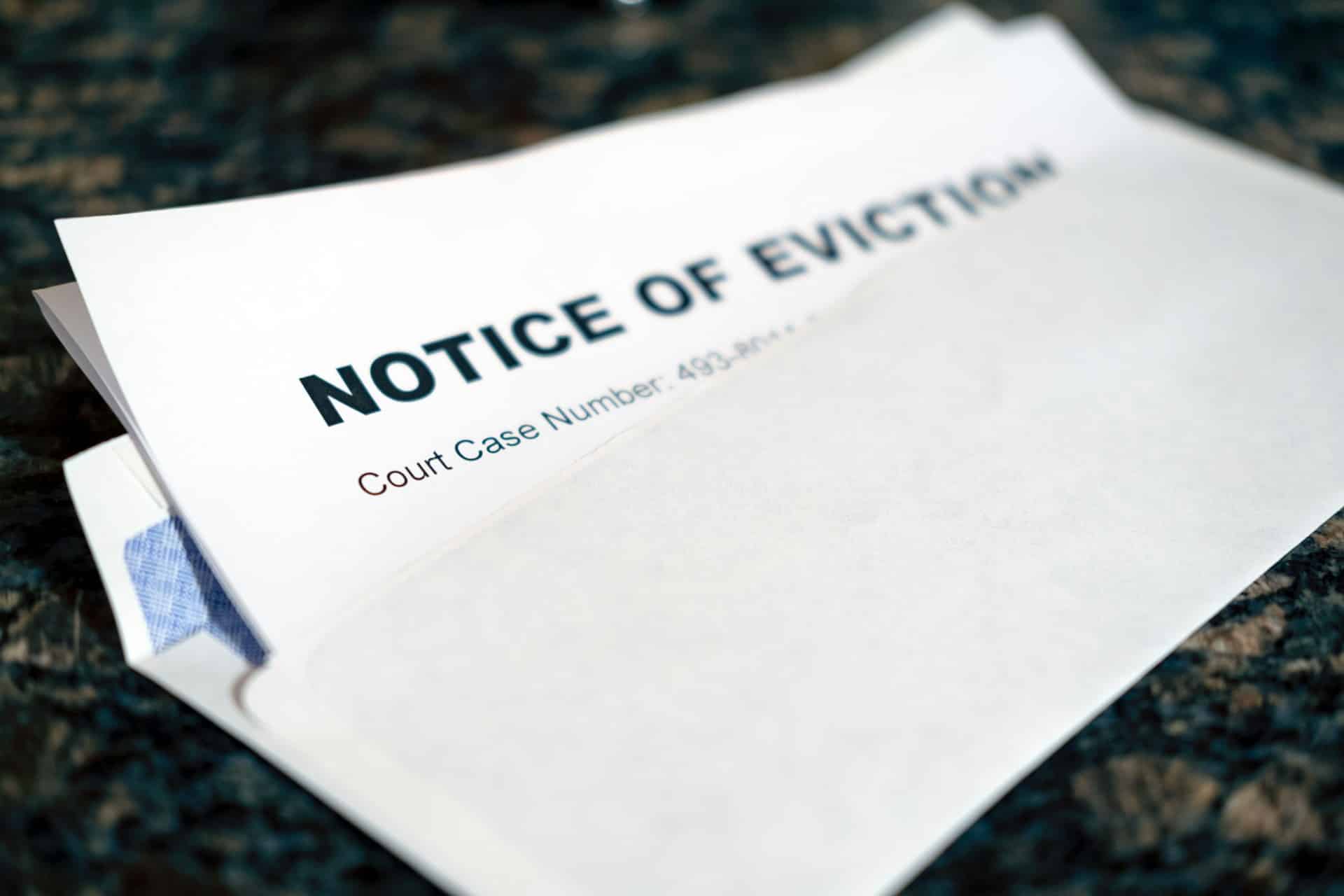Imagine waking up to the charred remains of what was once a cherished family home in New Hampshire. The aftermath of a house fire is a distressing reality for many, and the daunting task of selling a fire-damaged property can add to the homeowner’s woes.
You’re faced with a barrage of questions:
- Will anyone be interested in buying a home touched by flames?
- How much value has the fire stripped away from your property?
This article casts a ray of hope for homeowners, offering strategic insights aimed at attracting potential buyers and securing a successful sale. From understanding the impact of fire damage on your property’s worth to the legal nuances of disclosure and finding the right price point, we’ll explore every facet necessary to turn adversity into opportunity.
For those grappling with how to sell a house with fire damage in New Hampshire, this article presents not just theoretical advice but practical steps backed by real-world successes. So, whether you’re dealing with minor smoke damage or extensive structural issues, get ready to empower yourself with knowledge that can help make your fire-damaged home an attractive proposition to buyers.
The Impact of Fire Damage on Property Value in New Hampshire
When a house in New Hampshire suffers fire damage, it can have a significant effect on its property value. According to the National Fire Protection Association, the value of a property can drop by an average of 15% to 25% after fire damage, depending on how severe it is and which part of the house is affected.
To truly understand the impact of fire damage, homeowners should consider getting a comprehensive appraisal done. Here are some key things to know about this process:
Understanding Hidden Effects of Fire Damage
Not all consequences of a fire are obvious at first glance. There are hidden effects that may not be immediately visible but can still have long-term implications:
- Smoke Infiltration: Smoke can seep into walls and other surfaces, leaving behind odors and discoloration. This can be challenging to remove completely and may require additional restoration work.
- Heat Damage: Intense heat can cause structural elements like framing and foundations to weaken or warp. Appraisers carefully inspect these areas for any signs of damage.
- Water Damage: The water used to extinguish the fire can result in its own set of problems, such as soaked drywall, flooring, and belongings. Appraisers check for any water-related issues that need attention.
These hidden effects highlight the importance of having a knowledgeable professional assess the property thoroughly.
Understanding State Disclosure Laws for Fire-Damaged Homes in New Hampshire
When selling a fire-damaged property, it’s important to know and comply with the legal requirements. In New Hampshire, there are specific rules called state disclosure laws that sellers must follow when selling houses that have been damaged by fire. These laws exist to ensure that buyers have all the necessary information about the fire damage before making a decision.
What are the Disclosure Requirements?
According to New Hampshire state regulations, sellers of fire-damaged homes are required to fill out a disclosure form. This form asks for details about the fire incident and its impact on the property. Here’s what sellers need to disclose:
- The date of the fire incident
- The areas of the house that were affected
- The extent and nature of the damage caused by the fire
- Any repairs or restoration work that has been done to address the damage
Why is Disclosure Important?
Failing to provide accurate and complete information about the fire damage can have serious consequences for sellers. Buyers who discover undisclosed problems after purchasing a property may take legal action against the seller. In fact, there have been cases in New Hampshire where sellers were penalized for not disclosing previous fire damage that resulted in structural issues with the house.
But aside from potential legal troubles, not meeting these disclosure obligations can also harm a seller’s reputation in the real estate market. It can make it difficult to attract future buyers and may even deter real estate professionals from working with you on future deals.
So whether it’s due to legal requirements or simply good business ethics, being transparent about any fire damage is essential when selling a fire-damaged home in New Hampshire.
Now that we’ve covered the importance of disclosure, let’s move on to another crucial aspect of selling a fire-damaged property: pricing it right.
How to Set a Price For Your Fire-Damaged House
Pricing a property after it has sustained fire damage is not easy. There are many things to think about that are not usually a concern with undamaged houses. Here are some important factors to consider when determining the price of a fire-damaged house:
Factors Affecting Pricing
- Extent of structural damage: How severe is the damage to the house’s structure, such as the electrical or plumbing systems?
- Cost of potential renovations: How much money will it take to fix the house and make it livable again?
- Insurance implications: Will insurance payments or lack thereof impact the pricing strategy?
Challenges with Traditional Valuation Methods
Using traditional methods to determine the value of a house may not work well for fire-damaged properties because they rely on data from similar sales in the area, which might not be available in this case. These methods might not take into account unique factors specific to fire-damaged homes.
The Importance of Working with an Experienced Real Estate Expert
To navigate these complexities, it’s beneficial to work with a real estate agent who has experience dealing with fire-damaged properties in New Hampshire. They can provide valuable insights and assistance in:
- Understanding the local market conditions and buyer expectations.
- Assessing the property’s potential after restoration.
- Developing a pricing strategy that attracts buyers without undervaluing the property.
These agents can also help negotiate with buyers who may have concerns about investing in a fire-damaged house. Their expertise ensures that sellers have a realistic pricing strategy that maximizes their chances of getting a good deal.
Remember, accurately pricing a fire-damaged house requires careful consideration of its unique characteristics and working closely with professionals who understand this specialized market.
How Do You Secure a House After a Fire in New Hampshire?
Securing your house after a fire involves several crucial steps. These steps are essential not only to protect the property from further damage but also to ensure the safety and security of the occupants.
Step 1: Contact Local Authorities
After a fire, always get in touch with local authorities or the fire department to ascertain whether it’s safe to enter the property. They can provide you with important information regarding structural stability and potential hazards.
Step 2: Document the Damage
To aid in insurance claims, make sure to document all damages. Capture photographs or videos of affected areas and list down all damaged items. However, avoid moving anything until an insurance adjuster has evaluated your home.
Step 3: Secure the Property
To prevent unauthorized entry and to safeguard against further damage from weather conditions, secure your property:
- Board up damaged windows and doors: This helps to prevent unlawful entry and additional damage from exposure to elements.
- Cover damaged roofs: Using tarps or plywood will help protect your home from rain and other inclement weather.
Step 4: Arrange for Temporary Accommodation
If your house is uninhabitable after the fire, arrange for temporary accommodation for you and your family. This could be a hotel or staying with relatives or friends.
Step 5: Initiate Clean-Up Efforts
Once given clearance, initiate clean-up efforts:
- Remove Water: If water was used to extinguish the fire, start by removing it as soon as possible to prevent mold growth.
- Clean Soot residue: Soot can cause further damage if left untreated. Use a vacuum cleaner or soot sponge to remove it.
- Eliminate smoke odors: Use deodorizers or professional smoke odor eliminators to rid your home of any lingering smoke smell.
Remember that this is only a guide, and securing a home after a fire might entail more based on the specific circumstances. It’s highly recommended to consult with professionals for both safety and efficient restoration of your property.
How Do You Calculate Fire Damage Cost?
Estimating the cost of fire damage to a property is a complex process that requires meticulous examination and consideration of various factors. The process involves quantifying the extent of the damage, determining the repair or replacement cost, and accounting for any additional expenses incurred due to the fire.
Here’s a step-by-step guide on how you can calculate fire damage cost:
- Assess Structural Damage Begin by evaluating the extent of the structural damage. This could range from minor cosmetic issues, like smoke staining on walls, to major problems such as weakened foundations or collapsed roofs. If needed, engage with a professional inspector who can provide an accurate assessment.
- Evaluate Interior Damages Next, assess the interior damages. These might include burned furniture, damaged electronics, ruined carpets, and more. It’s important here to distinguish between items that can be repaired versus those that need replacement.
- Consider Smoke and Soot Damage Fire also causes smoke and soot damage which might not be immediately visible but can have long-term effects on your health and property value. Professional cleaning services are often required to effectively remove smoke residues and odors.
- Calculate Repair or Replacement Costs Once you’ve assessed all visible and hidden damages, start calculating the costs. For each damaged item or structure, obtain either repair quotes from contractors or replacement costs from relevant suppliers.
- Add Additional Expenses Don’t forget to factor in additional expenses such as temporary accommodation costs if the property is uninhabitable, or costs related to water damage from firefighting efforts.
- Factor in Potential Decrease in Property Value Fire damage can significantly lower your property’s market value. Consult with real estate professionals or conduct market research to estimate any potential depreciation.
Remember, this is just a basic framework for calculating fire damage cost. Actual costs may vary based on the unique circumstances of your property and the severity of damage. It is always recommended to engage with professionals for a thorough and accurate estimate.
Can You Get a Mortgage on a Fire-Damaged Property in New Hampshire?
When selling a fire-damaged house in New Hampshire, it’s important to be aware of the financing challenges that may arise. Traditional mortgage lenders are often cautious about lending for properties with extensive damage because of the higher risk associated with them. As a result, there may be fewer potential buyers for your property since many people depend on mortgages to buy homes.
How to Sell Your Fire Damaged Property in New Hampshire As-Is
A fire-damaged house can present unique challenges when it comes to selling. However, with the right approach and a little creativity, you can still find interested buyers. Here are some options to consider:
Renovate & Put Your House on the Market
When the fire damage to your property is not extensive, investing in strategic repairs and renovations can significantly amplify your home’s market value. This process involves several steps:
- Consult with contractors: Seek out reputable contractors, preferably those with experience in repairing fire-damaged properties, to get detailed estimates on the cost of necessary repairs.
- Evaluate potential return on investment (ROI): Compare the overall cost of repairs against the potential increase in sale price. A substantial ROI can make the renovation route a profitable choice.
- Consider temporary relocation: Depending on the extent of the repairs needed, you may need to relocate temporarily. Factor this into your expenses when assessing the viability of renovation.
Selling “As Is” to a Cash Home Buyer
On the other hand, there are buyers (such as our company) who specialize in purchasing properties that require extensive repairs or renovation. While we typically buy fire damaged properties at a lower price point, we offer a streamlined sale process that can be particularly appealing if you’re looking to sell quickly. In fact, we can close on your property as fast as 7 business days as-is!
Regardless of which route you choose, it’s crucial to conduct thorough research on each option and understand its implications fully.
Key Takeaway: Engage professionals such as real estate investors or attorneys who have expertise in handling fire-damaged property sales.
Final Thoughts
Selling a house with fire damage in New Hampshire might seem daunting, but with the right approach and resources, you can navigate through this intricate fire-damaged property market. Be sure to remember these key strategies:
1. Assess the Impact: Understand how fire damage affects your property’s value and get a professional assessment to gauge both visible and hidden damages.
2. Lawful Disclosure: Stay compliant with New Hampshire’s disclosure laws to avoid potential liabilities. Transparency builds trust with potential buyers.
3. Price It Right: Work with experienced real estate agents to price your fire-damaged home appropriately, striking the right balance for the market.
4. Marketing Magic: Use creative marketing tactics to highlight the potential of your property and employ staging techniques that emphasize its best features.
5. Financing Flexibility: Recognize that traditional mortgages may be challenging to obtain and consider alternative financing options such as renovation loans or cash offers.
Don’t hesitate to seek out knowledgeable professionals who can support you every step of the way. There are buyers out there looking for opportunities just like yours — it’s all about presenting your home in the best light and finding the right fit. With optimism and informed decision-making, you’re well on your way to a successful sale.
⚡ Sell Your House Fast
"*" indicates required fields

Pavel Khaykin
Pavel Khaykin is the founder and author of Pavel Buys Houses, a nationwide home buying company that helps homeowners sell their properties quickly for cash. With a strong background in real estate and digital marketing, Pavel has been featured in The New York Times, ABC News, and The Huffington Post. His mission is to make the home-selling process simple, transparent, and trustworthy for every homeowner he works with.







